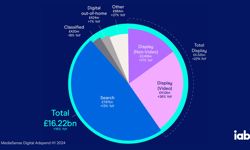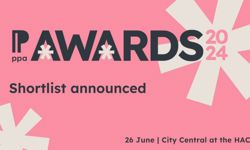
Q: What is the main item on the AOP Commercial Group’s agenda at the moment and why is it important?
A:
From a commercial perspective, digital publishers do not currently receive a fair share of available market revenue, despite supplying valuable content and data which provides context to the news agenda where the digital ecosystem relies on a rich framework of publishers sharing their rolling content and audience insights.This has been the main agenda item on the AOP Commercial Group, however, as we are operating in a time where there is no consistency – whether that’s the ever-changing news cycle or the latest iteration of the Google Sandbox – we are always having to adapt to ensure our market offering is compliant, valuable and scalable.
In a world of fake news, trusted newsbrand content has never been more important for consumers seeking reliable journalism. It’s no longer acceptable to scrape publisher sites and not declare how or what that data is to be used for. Publishers need to focus on openness and transparency with the technologies we work with.
The AOP is committed to supporting responsible journalism and holding technologies to account.
Q: What is the opportunity for publishers in finding a successful resolution to this?
A:
The opportunity for publishers to succeed is through collaboration. There are many different initiatives that publishers could support, but we need to collaborate to ensure we are aligned on the shared priorities.With lots of change in the market, we have an opportunity to reset; whether that is new technologies, new standards of measurement or even new metrics to buy against.
Attention is a great example of this, where the outdated clicks / CTR models are no longer an effective metric of success, and time spent engaging with content presents a truer picture.
All of these initiatives drive our industry forward, but all require dedicated time and development to design and activate. The more we can share learnings and collaborate to drive adoption, the more streamlined these developments can become.
Q: What are the challenges & hurdles to a successful resolution?
A:
Everything is in a constant state of change, so there is a reluctance for us to only put investment and resource into one solution. We know that regulation and buyer demands could shift and we don’t know what frameworks will win out, so we have to spread ourselves across multiple possible outcomes.Couple this with the speed of change; we create new concepts, sell this into our clients and test it, but by the time the test is live, that principle could have been deprecated! It’s incredibly important for all parties to be aligned on the timelines and potential outcomes so we don’t end up playing whack-a-mole across emerging technologies and market solutions.
Q: What changes need to be made to achieve the right outcome and what is the timeline?
A:
For me, the biggest thing to address is having the “sell side” and the “buy side” working together and to the same timelines; it’s impossible to test anything without both parties. Not only to audit new vendors, but to test them in the same timeframe.Benchmarks for any new metrics or data technologies take time to be established. Each new vendor comes to market with a new methodology, but we should always be aiming for standardisation and a cohesive approach from publishers so they can be operational as quickly as possible.
Again, collaboration is key and calculated risks to test are your friend. I love a proof of concept, but the theory only goes so far, and the real test is always when you start to see Ad Dollars transacting against it!
Q: What projects / challenges do you expect to come to the fore in future meetings of your steering group?
A:
I think there will be few key projects:- We have done a significant amount of work to finesse transparency and demonstrate the value of all players within the supply chain. But I think transparency will be revisited, to show the improvements we have made; to the speed and accessibility of the programmatic auditing process and supply chain.
- Standardised cohorts – how can the industry build and adopt a universal standard practice for classification and how it is assigned value by the market.
- Web Crawlers – whether it’s for classification, sustainability of the value chain, or to monitor that best practices and legal frameworks are being adhered to – we need a means for crawler usage to be declared and audited.
- Scam ads – As we see more regulation with The Online Safety Bill, it will become increasingly important that we work together to tackle scammers, and how they are accessing digital inventory.
Q: Looking more widely at commercial teams within publishers, where do you suggest publishers should be focusing their resources?
A:
Publishers need to have expertise across a number of pillars, including content, e-commerce, data, programmatic, legal and compliance, subscriptions – the list goes on! The main focus should be on remaining flexible enough to adapt to their customer needs, whether that’s their advertising partners or the end consumer, or regulators.One size doesn’t fit all, and each publisher will know its own audience best. Therefore, it would be for each publisher to determine the best commercial strategy for their consumers and then lean into how they can resource this.

About us
Formed in 2002, the Association of Online Publishers [AOP] is a UK industry body representing digital publishing companies. We champion the interests of media owners from diverse backgrounds including newspaper and magazine publishing, TV and radio broadcasting, and pure online media.
Our steering groups are the life blood of the AOP and help build networking ties across the industry. Member organisations can input into the agenda, drive discussion, share learnings, and send key staff members to represent them in the meetings. Our current steering groups include: Commercial, Ad Ops, Research, Product Development, B2B, Audience Development, HR and JAB [Journalism Advisory Board].
Website: www.ukaop.org
Email: info@ukaop.org.uk
This article was featured in our InPubWeekly newsletter. To be added to the free mailing list for the newsletter, please enter your email address here.












